The beginning of the deconfinement has led to the reactivation of trade – according to the Ministry of Industry, Trade and Tourism – after the standstill experienced during the last months. The fashion and retail sector (which is part of the retail trade activities), one of the most powerful at a national level since it represents almost 3% of the GDP, is preparing the de-escalation plan that will allow them to open the doors of their establishments with total security. As we have read in the press release from the Ministry of Industry, Trade and Tourism, the Government has drawn up the general guidelines that all businesses must follow but, subsequently, each brand has adapted them to its needs.
In the regulations offered by the Ministry, each phase change is a step forward in terms of returning to ‘normal’. In phase 1, which now includes the area of Barcelona, Madrid, the main capitals of Castilla y León, Ciudad Real, Toledo, Albacete, the Valencian Community and the provinces of Málaga and Granada, it is established that shops can be opened for walk-in service. In addition, it allows the opening of establishments that are not a center or a commercial park, the capacity is limited to 30% and must guarantee a minimum distance of two meters between customers in an area open to the public of less than 400 square meters.
In phase 2, they open the shopping centres or parks. However, it is forbidden to stay in the common areas or recreational areas. Likewise, the capacity will be limited to 40%. Finally, in the third phase, the ban on the use of common areas and recreational areas in shopping centres will end. Likewise, the capacity limitation will reach 50%. Remember that phase changes are subject to the characteristics of each sanitary area, so the return to ‘normality’ will be asymmetrical in each province.
Thus, the reopening of stores and the particularities of each one are at different levels in different national territories. For this reason, We reviewed the situation of the main stores in Spain and announced the security measures for them.
Table of Contents
Inditex Group
The group led by Amancio Ortega informs us that it has already opened all the stores nationwide (Zara, Pull&Bear, Massimo Dutti, Bershka, Stradivarius, Oysho, Zara Home and Uterqüe). Inditex stores, like all the others, are limited to 400 square metres of public access in the area closest to the door. Zara confirms that “the products we can find in the shop are basically a selection of pieces from the women’s collection and the new men’s and children’s items, in the style showroom”. In this way, “the customer may request the garments or sizes that are not available in the store through the online sales service they offer from the physical point of sale”.
As in the case of the other firms, security is paramount for Inditex. In this case, “employees wear masks and gloves, we find hydroalcoholic gels at the entrances and exits of establishments and the changing rooms are for alternate use”. In addition, “we do not use garment number cards and aim to avoid queues in the changing rooms as much as possible. In all the stores of the Inditex group, in-store repairs are cancelled and the dataphones are disinfected after each use”.
Finally, regarding the main stores in Madrid, “In the establishments on Serrano Street, Gran Via and Goya in the capital, some of the shop furniture has been removed to ensure more space between customers and employees”.
Mango
The Catalan multinational continues to be in the driver’s seat of the return to ‘normality’. According to the company itself, Mango has 69 stores operating in our country today, which includes points of sale of less than 400 square metres or areas fitted out in shops that exceed these dimensions, which are not located in shopping centres and are located in provinces that have already entered phase 1.
In terms of safety, cleaning is essential in Mango stores and is carried out with disinfectant products. In addition, the provision of protective equipment for employees and customers, capacity control (which, as we have already mentioned, depends on the phase in which each area is located) and distance between people, and the spraying of garments at high temperature for sanitization are stipulated. Finally, the changing rooms will be opened only on request and with limited capacity, and will be cleaned after use.
In Mango the garments that have been tried on by the customers will remain 48h in quarantine before being exposed again to the public. Finally, the use of credit cards will be encouraged and the dataphones will be disinfected after use.
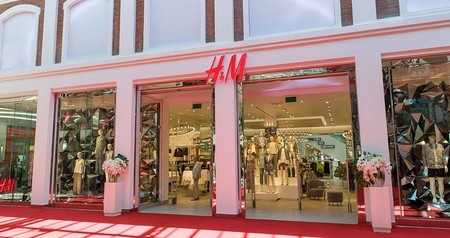
H&M
The Swedish giant already has some points of sale open in our country, but according to the company itself, last Friday was a turning point, as most stores were raising their blinds (such as, for example, the points located in Barcelona, Madrid, Palma de Mallorca, Salamanca, Palencia and Burgos).
To ensure the safety of customers and equipment, they have adopted the security measures recommended by experts. In the stores we will find hydroalcoholic gels to disinfect the hands at the entrance and exit of the establishment, the team will have disposable masks and gloves to protect their health and that of the customers, the limitation of the guaranteed capacity will be established according to the phase in which each sanitary area is located and screens will be installed in the boxes to guarantee safety.
H&M will establish priority opening hours for people over 65 (from 10:00 to 11:00) and will keep the fitting rooms closed. To facilitate the return of products, the swedish firm has extended the return period for your online and in-store purchases to 100 days (from 13 February to 21 June). In addition, the returned garments will spend a forty-eight hour quarantine -as in all other stores-.
Tendam Group
Within the Tendam group we find the firms Cortefiel, Pedro del Hierro, Women’secret, Springfield and Fifty. Most of the group’s stores are already open in our country, and comply with the space and capacity restrictions dictated by the Government. Last Monday, May 18, the group had 147 stores open, while it had scheduled to open 97 more stores over the past weekend.
As reported when the news broke, the company’s stores cash register areas and dataphones are cleaned after each use with hydroalcoholic solution or disinfectant solution. This cleaning is also applied to the terminal and the pen in case the purchase requires a signature. All the premises of its different brands are equipped with gel dispensers at the entrance of the same and in the tester and box areas.
In relation to the testersThe group’s stores limit the number of testers that can be occupied at any one time and access to them is controlled to ensure a safe distance in case there is a queue in the store. Finally, no maximum number of garments is given out.
In Tendam’s stores, as with other brands, garments are subject to a 48-hour quarantine after being tested by customers or returned.
C&A
The C&A firm announced last Friday, May 22nd that it had already opened 22 stores in 18 provincesThe number of stores has increased to 48 as of today, Monday 25 May, as a result of the entry into phase 1 of the territories of Barcelona, Madrid and the capitals of Castilla y León.
In most C&A outlets, the children’s fashion areasThis corresponds to the 400 square meters of the de-climbing process for large surfaces.
In relation to security measures, C&A has activated new disinfection protocols with virucidal products in all its stores. Seating is restricted to 30%, changing rooms will be closed at the beginning (until further notice), and return times will be extended.
Also, as in the stores we have already talked about, C&A establishes a 48-hour protocol for the disinfection and quarantine of clothes. In addition, the company has installed screens on the boxes, use of masks and disposal of hydroalcoholic gels for employees and clients.
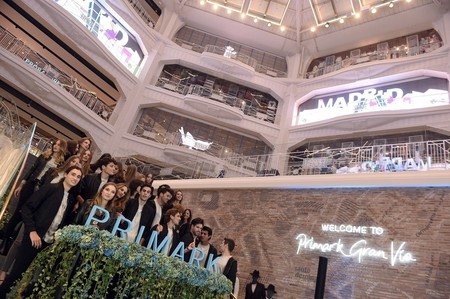
Primark
Primark is one of the firms that has delayed most the opening of its stores in our country (even though it is one of the companies most affected by this crisis as it does not have online sales). Specifically, the brand’s points of sale will not open their doors until the area in which it is located has entered zone 2 of the de-escalation.
Primark shops stand out because of the large number of products on display and the large surface area of their centres. For this reason, they need specific security measures. At Primark there will be a strict control of the capacity that ensures adequate separation between customers and employees (for the safety of both). Also, specific signs will be added in the stores and The company will rely on workers who are exclusively dedicated to guiding clients and thus to monitoring interpersonal contact.
As with the other stores, Primark will provide disinfectant gel at the entrances of the stores and its workers will wear masks and gloves. Finally, the company has designed methacrylate panels located at the checkouts to protect customers and employees.
For the moment, Primark’s main centres in Spain, located in Madrid and Barcelona, will have to wait more than two weeks to open their doors (as both provinces are still waiting to enter phase 1).
El Corte Inglés
The main point of great multi-brand distribution in our country has kept the doors of its supermarket area open during the confinement. Now, thanks to the beginning of the de-climbing, it has allowed access to 400 meters restricted from its other sales areas.
Big stores like those in Goya, Castellana or Preciados in Madrid have their blinds raised and customer access is limited to a fenced area near the door. In these areas, the products that each direct from the store has believed appropriate are exposed.
El Corte Inglés follows the hygienic-sanitary measures established by the Government. Specifically, it maintains the use of hydro-alcoholic gel when entering the establishment, the use of plastic gloves and tights to try on shoes, has installed screens in the boxes and requires that the distance between customers be maintained at two meters.
Photos | Inditex, H&M, Gtres

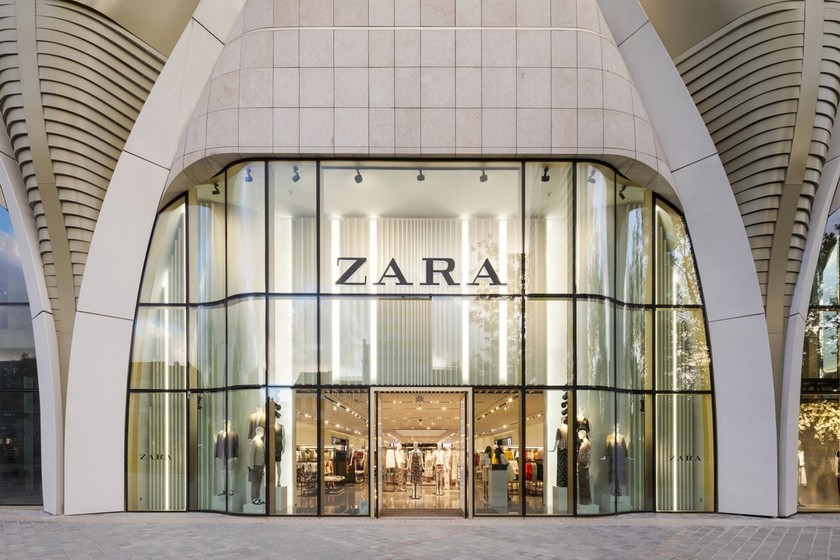
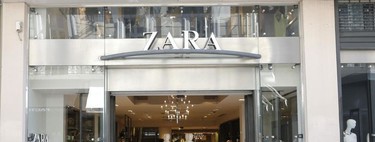
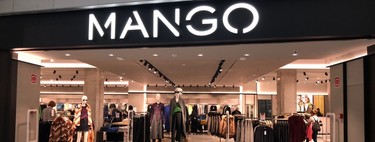
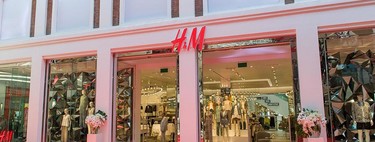

Leave a Reply